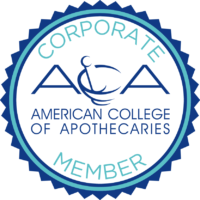
Attention Pharmacies!
A Clinical Laboratory Improvement Amendment (CLIA) Certificate of Waiver is a certification that allows a facility, primarily laboratories, to legally examine a person through waived tests in order to assess health, diagnose, and determine treatment. Each CLIA Certificate of Waiver includes a ten-digit CLIA number, issued by the U.S. Department of Health and Human Services, that identifies each separate certificate. The purpose of a CLIA Certificate of Waiver is to ensure that laboratory standards are met which ensure timeliness, accuracy, and reliability of laboratory test results for patients. Diagnostic testing allows healthcare providers (doctors, nurses, etc.) to monitor and/or check for a variety of diseases and conditions. To attain a CLIA Certificate of Waiver or any other CLIA certificate, a laboratory must fill out and submit the CMS-116 Form located on the US Department of Health and Human Services website.
The CLIA section in the Laboratory Field Services ensures proper measures are taken to comply with state and federal clinical laboratory laws/regulations through onsite inspections twice a year. Certificates like the CLIA Certificate of Waiver are used to enforce and regulate laboratories. This makes sure that there is a high standard of accuracy and reliability of test results from laboratories, regardless of its location. The CLIA sets regulations for laboratory testing, specifically certifications such as the CLIA Certificate of Waiver, on a state and federal level (Center for Medicare and Medicaid Service (CMS)) before permitting laboratories to accept samples from patients for diagnostic testing. With a CLIA Certificate of Waiver, the entities that ensure that CLIA regulations are being followed would allow laboratories to run tests to assess a patient’s condition, given that the tests have been waived.
There are various types of CLIA certificates, each based on the types of diagnostic tests a laboratory may run. Regarding the policies set by the CLIA, there are three government agencies that share the responsibilities of CLIA: the Center for Disease Control (CDC), the Food and Drug Administration (FDA), and the Center for Medicaid Services (CMS). All carry different responsibilities regarding CLIA and CLIA Certificate of Waivers. Any facility that intends to perform laboratory tests on “human specimens for the purpose of diagnosis and/or treatment” is required by federal law and, often, state law to have a CLIA Certificate of Waiver for some tests… For other tests, the CLIA requires that the laboratory has the appropriate certificate, depending on the type of test. However, the CLIA Certificate of Waiver is not needed if there is no testing on-site in the facilities. In total, CLIA covers around 260,000 laboratory entities.
*Reviewed and approved by Dr. Rob Lapporte
How to Apply for a CLIA Certificate
The Centers for Medicare & Medicaid Services (CMS) has made the Clinical Laboratory Improvement Amendments of 1988 (CLIA) Application for Certification Form, CMS-116, available on their website. This form should be completed and mailed to the local State Agency for the state in which your laboratory resides. Click here to get find the address for your local State Agency.
You can visit the CMS website for more information on how to apply for a CLIA Certificate.
Additional Resources
Want to know more?
We understand this process can be confusing and may seem like there’s a lot of hoops to jump through, but myphysician360 is here to help you navigate it as smoothly as possible! If you have any questions on how to get started applying for a CLIA Certificate or why it’s important, feel free to contact us anytime or emailing us directly at info@physician360.co.


